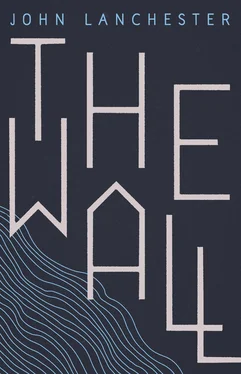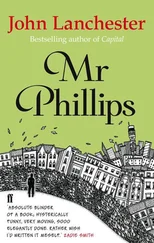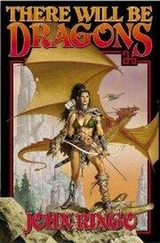John Lanchester - The Wall
Здесь есть возможность читать онлайн «John Lanchester - The Wall» весь текст электронной книги совершенно бесплатно (целиком полную версию без сокращений). В некоторых случаях можно слушать аудио, скачать через торрент в формате fb2 и присутствует краткое содержание. Год выпуска: 2018, ISBN: 2018, Издательство: Faber & Faber, Жанр: Современная проза, на английском языке. Описание произведения, (предисловие) а так же отзывы посетителей доступны на портале библиотеки ЛибКат.
- Название:The Wall
- Автор:
- Издательство:Faber & Faber
- Жанр:
- Год:2018
- ISBN:978-0-571-29871-6
- Рейтинг книги:3 / 5. Голосов: 2
-
Избранное:Добавить в избранное
- Отзывы:
-
Ваша оценка:
- 60
- 1
- 2
- 3
- 4
- 5
The Wall: краткое содержание, описание и аннотация
Предлагаем к чтению аннотацию, описание, краткое содержание или предисловие (зависит от того, что написал сам автор книги «The Wall»). Если вы не нашли необходимую информацию о книге — напишите в комментариях, мы постараемся отыскать её.
The Wall — читать онлайн бесплатно полную книгу (весь текст) целиком
Ниже представлен текст книги, разбитый по страницам. Система сохранения места последней прочитанной страницы, позволяет с удобством читать онлайн бесплатно книгу «The Wall», без необходимости каждый раз заново искать на чём Вы остановились. Поставьте закладку, и сможете в любой момент перейти на страницу, на которой закончили чтение.
Интервал:
Закладка:
‘Er, hi James.’
‘How are you?’ he said with the intensity dialled up. ‘How are you?’ He had put on a concerned face.
‘I’m fine, thanks.’
‘Wound better?’
‘Yes, thanks.’
‘Change of landscape welcome?’
‘So, there’s a thing Defenders say, the Wall has no accent. Meaning, it’s sort of the same everywhere.’
‘Do they? Do they say that? That’s good, that’s really good. No accent – yes.’ He nodded two or three times. ‘Well, it’s good to catch up with old friends. Good to stay in touch. Let me just give you this, just in case.’
He took a card out of his top jacket pocket and handed it to me: a name and an email address. He reached out to give my arm a parting squeeze, then I saw him remembering that I had been wounded, and he wasn’t clear for a fraction of a second what to do, then he either remembered it had been my right shoulder and he was aiming for my left arm, or he remembered that he had just asked me if I had recovered, so if my arm was too sore to squeeze it was in a sense my responsibility not his, and went on with the gesture. I took the card, put it in my pocket, said goodbye. It was a small thing but I took it as a sign, meaning that he saw in me some of the same stuff I saw, or wanted to see, in myself. He could smell the ambition, the get-me-out-of-here scent, all over me.
I was pleased. I also felt that I needed to have a shower. Sarge took a moment to talk to me as we were going through to lunch. The rest of the squad had already gone ahead and sat down and were getting stuck in.
‘You know what that plonker said. We’re lucky to have you?’
I got my modest face ready and said that I did.
‘Reckon if we really were lucky, we’d not have been attacked.’
Fair enough.
Two tours went past without anything much happening. It was just past the top of high summer; short nights, with amazing northern sky colours I’d never seen before, shades of blue and purple shading into deep-blue-grey-purple and purple-off-black and deep black. Once or twice, during nights when we weren’t on shift, Hifa and I even went for a walk inland to get away from the light pollution of the Wall, so we could see the stars. There were so many lights in the sky that night seemed not so much a thing of darkness as an experiment in a different form of illumination, an invitation to navigate by star.
‘It’s beautiful up here,’ Hifa said.
‘In the summer.’
‘It smells different.’
That was true – it did smell different. The sea smelt different. It must be that the sea flora were different, the kelp and seaweed species were more pungent, vegetal and cabbagey, but not unpleasantly so. Greener, basically, it smelt greener. Of living things. It was hard not to imagine what life would be like after the Wall, when you could go on a walk whenever you felt like it and goof off whenever you felt like it and also work hard at clawing your way up in life and becoming a member of the elite and taking over the world. Also, a baby or babies plural. I liked those walks and that sky.
On our third far-northern tour, I didn’t see the sky much, because I was on nights and the lights spoiled the view. It was the least difficult night guarding I’ve ever done, because the dark was so short and the nightfall and sunrise so long and so spectacular, a protracted set-piece natural show. The danger and difficulty of the tour down south seemed a long distance off. The only person who didn’t appear to like being where we were was the Captain, who was the closest he ever got to being edgy; as if the sense of quietness and peace and distance bothered him. He made his rounds more regularly than ever and had less than ever to say.
‘Maybe it’s a post-traumatic thing,’ Hughes speculated one morning in the mess, after a night when the Captain had come round no fewer than five times. ‘He killed two people with a sodding machete. Practically cut them in half. People who maybe were not so unlike he once was. It’s going to take a bit of processing.’
‘He’s not the type,’ I said.
‘Everyone’s the type sooner or later,’ said Hifa. We gently bickered for a while, without reaching a conclusion. The Captain was off, though, everyone agreed.
Eight days into that tour came the first really difficult weather we had seen up north. There had been days which were damp and still, and the air was so full of moisture it was like living inside a cloud that had sunk to earth, but from the Defenders’ point of view, the great virtue of that weather was that in the super-humid silence, you could hear a cough or a metal clank from hundreds of metres away. You could talk to the Defender at the next post without raising your voice. There were other days with abrupt squally showers, gusts of wind and horizontal rain that you could see coming across the water towards you, which hit hard and overwhelmingly, and were gone in minutes. After the first one of these, you never forgot your waterproofs again. But that night was different, a hard rain and wind combined with a hard close fog; a sudden premonition of what it would be like up here when winter came.
‘It’s beautiful up here,’ I said over the communicator.
‘Oh shut up,’ said Hifa.
‘Get a room,’ said Hughes.
‘Keep it hygienic,’ said Sarge, meaning, keep off the communicator unless it’s to do with business. It was a sensible thing to say on a night when it was so hard to hear, but we had got a little casual up north. I don’t think any of us really believed in the possibility of an attack. Sarge added: ‘He hasn’t been around yet, which means he’ll be here any minute.’ In other words, the Captain, uncharacteristically absent from his prowling so far that night, was coming soon.
I had long since given up checking the time when I was on guard, but it was some way in between ‘lunch’ (the midnight version of the main meal, that is) and the second cup of tea. Dawn was about an hour or more away. The weather was filthier than ever. It was hard to see. Specifically, it was hard to see straight in front of you, in the direction from which the wind and waves were coming, straight at the Wall. When you looked sideways towards the guard posts next to you, all you could see was flooding, streaming, torrential rain sheeting through the Wall lights.
I remember that I was thinking, it’s hard to know what’s going on out there, it’s like a white-out, except it’s pitch black, when the lights failed. It was a sensation so strange, and the disorientation was so total, that it took a few seconds to understand. There was lots of swearing and lamentation over the communicator.
‘This is silver command,’ said Sarge, meaning, everyone else shut up. ‘Hold your posts. The lights have failed all along our sector. Stand still and shut up. The backup will kick in any second.’
In drills and training, the backup generator usually started within fifteen to thirty seconds. That didn’t happen. It was eerie, but I wasn’t worried, it was just one of those Wall cockups. The thirty seconds went past, no generator, no lights, no communication. Another thirty seconds. This was the longest period of dark I’d known on the Wall since the night in training when we had been playing at attack and had used a five-minute blackout to overrun the Defenders.
The Wall lit up with gunfire. It was at the far end from my post, close to the watchtower. Several different sets of automatic weapons were firing and none of them sounded like the kind used by Defenders. Then there were three explosions, a big one, then a bigger one, then the biggest explosion I had ever seen or heard, so loud it had a shockwave that hit a second or so after the light and flame. It came from the barracks. The brief glimpse of illumination showed me nothing that I could understand, but it was clear that there was fighting on the Wall. A voice came on the communicator, saying, ‘Others, code red,’ which told me nothing that I didn’t already know. Our training was to check if our own post was clear and then either obey orders or, if there weren’t any, to assess whether to run towards the fight or stand at post. I stood up to the Wall but in the rain and wind and dark I couldn’t see what was on the other side. There could have been an Other five feet below me, there could have been none in the next thousand metres. ‘Sergeant, orders please,’ I said, joining the three or four Defenders who’d made the same request, but there was no answer, so I said, ‘Kavanagh post thirteen engaging,’ and left my post to run towards the fight. There were two kinds of shooting now, our rifles and the flatter sound of the Others’ weapons. Hifa said over the communicator that she was engaging too. I stopped to wait for her and thirty seconds later she was beside me, the grenade launcher at her shoulder, her eyes wild, the biggest I’d ever seen them. We just looked at each other. Then we moved off, more slowly, jogging rather than running, towards the gunfire, keeping as far away from each other as we could on opposite sides of the ramparts, to make a more difficult target.
Читать дальшеИнтервал:
Закладка:
Похожие книги на «The Wall»
Представляем Вашему вниманию похожие книги на «The Wall» списком для выбора. Мы отобрали схожую по названию и смыслу литературу в надежде предоставить читателям больше вариантов отыскать новые, интересные, ещё непрочитанные произведения.
Обсуждение, отзывы о книге «The Wall» и просто собственные мнения читателей. Оставьте ваши комментарии, напишите, что Вы думаете о произведении, его смысле или главных героях. Укажите что конкретно понравилось, а что нет, и почему Вы так считаете.












